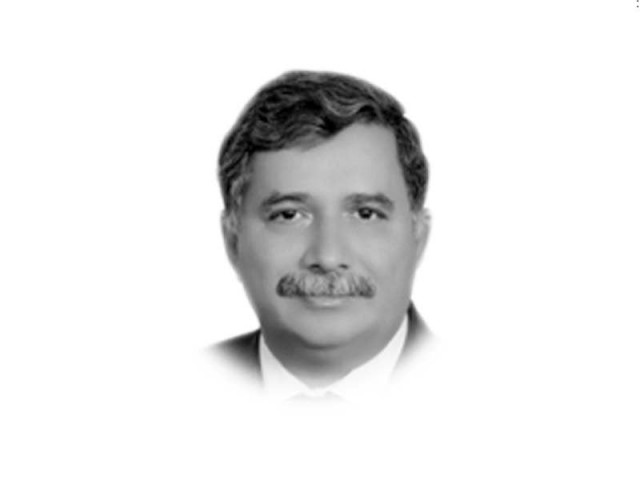Independence - dreams deferred?
Fundamental rights enshrined in the Constitution - freedom of speech, assembly, movement, association

Independence Day on 14th August passed amidst jubilation, military parades, patriotic songs and dazzling illuminations. Seventy-eight years on, we continue to mark this day with great fervour. The very word independence evokes a sense of fresh breathing, of casting off the shackles that once bound us. All nations take pride in their independence, for it is supposed to signify dignity, self-determination and collective ownership of destiny.
But have we ever paused to ask ourselves: Why did we seek independence? What does it truly mean in the life of a nation?
Before 14 August 1947, we had our mosques, offered our prayers and revered our shrines, many of which were - and still are - in India. Millions of Muslims continue to live there today. Our inheritance, marriages and other personal matters were governed under Muslim personal law. Then why was there such a powerful demand for a separate homeland?
The leaders of the Pakistan Movement argued that in a Hindu-majority India, Muslims would be politically marginalised and economically disadvantaged. Their voices would be drowned, their talents stifled. They feared that without political autonomy, Muslims would remain underdogs - destined for poverty, exploitation and denial of fundamental rights. The dream was of emancipation from the yoke of subjugation - of a state where the rights of all citizens would be safeguarded, where justice would prevail, and where every individual could flourish regardless of creed, caste or class.
Yet, as we look around today, the picture is starkly different from what was envisioned. Extreme poverty engulfs nearly half of our population. The Pakistan Bureau of Statistics and independent economic surveys repeatedly warn of widening inequality. Millions of children remain out of school; malnutrition and stunted growth plague our future generations; the doctor-to-patient ratio remains critically low; and basic health facilities are beyond the reach of the common man.
Fundamental rights enshrined in the Constitution - freedom of speech, assembly, movement and association - are often curtailed in practice. Political freedoms have been repeatedly subjected to arbitrary restrictions, and dissent is often treated not as a democratic necessity but as a threat to state security.
The constitutional journey, too, has been tumultuous. The 1973 Constitution, envisaged as a consensual social contract, has been subjected to repeated suspensions, abrogations and distortions. Rather than serving as the supreme law binding all institutions to democratic norms, it has too often been bent to serve the expediencies of those in power. The 26th Amendment and other constitutional manoeuvres have often reflected power struggles rather than principled reform. The spirit of constitutionalism - the guarantee that no one is above the law - remains fragile.
What is even more troubling is the misuse of laws meant for national security. The Anti-Terrorism Act, enacted in the 1990s to combat genuine threats to public safety, has been weaponised against political leaders and parties. Peaceful protests, sit-ins and rallies - hallmarks of a functioning democracy - are painted with the same brush as acts of terrorism. Such practices not only undermine democracy but also corrode public trust in state institutions.
Due process of law, a cornerstone of justice, is often ignored. Political opponents are detained without fair trial; investigations become tools of harassment; and the presumption of innocence - a basic principle of law - is eroded. In several recent instances, prolonged detention without conviction has become the norm, effectively punishing individuals before any court has declared them guilty. This is not merely a political problem - it is a deep constitutional wound.
In his haunting poem Subh-e-Azadi, written in the aftermath of Partition, Faiz Ahmad Faiz captured the disillusionment of a people who had gained political freedom but not the promised social and economic justice:
"This stained light, this night-bitten dawn
This is not the dawn we longed for;
This is not the dawn for which we set out
Hoping to find, somewhere in the desert of the sky,
The final destination of the stars' night."
Faiz's lament was not a rejection of freedom itself, but a painful recognition that the journey towards true independence - independence from hunger, fear, exploitation and injustice - was far from over. Sadly, his words still resonate today.
True independence is not merely the absence of foreign rule; it is the presence of justice, equality and opportunity. It is a system where the weak can challenge the strong and still win, where the law protects without prejudice, and where the state serves its citizens rather than ruling over them. It is a social contract binding rulers to act as trustees of the people's welfare.
Seventy-eight years on, we must ask ourselves: Have we honoured that contract? Have we upheld the ideals for which sacrifices were made, lives were lost and dreams were kindled? Or have we replaced one form of subjugation with another - swapping foreign masters for domestic elites who treat the state as their personal estate?
Our economic woes, human rights violations and governance failures are not inevitable. They are the product of choices - choices to prioritise short-term political gains over long-term institutional reform; to silence dissent instead of engaging it; to centralise power rather than distribute it.
If we continue to drift away from constitutional governance, allow poverty to deepen and permit the erosion of rights, then the celebrations each August will ring hollow. The parades, the songs and the fireworks will be but a veneer over a deeper national unease. Independence will remain an unfulfilled promise - an anthem sung without meaning, a flag raised without purpose.
The dream of Pakistan was never simply about a piece of land; it was about creating a society grounded in dignity, justice and equality. Until we realise that vision, Faiz's "night-bitten dawn" will continue to haunt our mornings.
















COMMENTS
Comments are moderated and generally will be posted if they are on-topic and not abusive.
For more information, please see our Comments FAQ